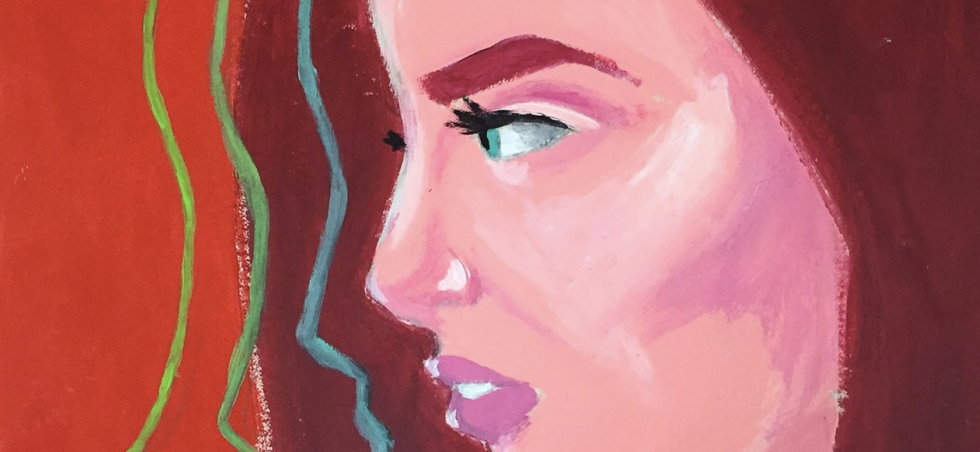I've suffered from anxiety since early childhood. I didn't have any specific fears, but more of a constant sense of panic that lingered in the back of my mind. The first time I experienced derealization, I didn't know how to feel. Derealization (DR) is a lesser-known side effect of anxiety. Although it is typically accompanied by depersonalization, I've never experienced that. According to anxietycanada.com, derealization is:
- distorted perception of time, space, and size of things around you
- Feeling unreality from the world around you, as if in a dream of trance
- Feeling like everything is foggy or fuzzy
- Sense of being disconnected from those around you as if you're trapped in a bubble
- Thoughts of "going crazy" or being very ill.
As someone who has been diagnosed with this, I can confirm that all of these feelings can be experienced when in a state of derealization. When I first had a DR episode, I was playing laser tag with my friends. One moment I was running through the dark tunnels and enjoying myself, the next thing I knew I felt like I needed to faint. I lowered myself to the ground and became enveloped in a sense of terror — the world around me seemed unfamiliar. I knew where I was, but I also felt like I had never been there before. The best way I could explain it was like a reverse deja-vu.
When I was seventeen, I experienced DR again. This time, it stuck around for longer than a few days. While some days were better than others, every morning I woke up a bedroom that I knew was mine, but didn't feel like it. I felt like I was truly going insane. My therapist, bless her heart, wasn't equipped to deal with the severity of my mental illness, and only gave me breathing exercises to help calm me down.
I remember one night, sobbing in my bedroom because I felt like my grip on reality was slipping, and that the world around me was unraveling, I wished that I would just die. Although I never had developed a plan to end my life, I was beginning to believe that my state of anxiety and disconnection was permanent and that the only relief would be death. I didn't necessarily want to kill myself, I just wanted to escape from the awful feeling of unfamiliarity that plagued me every day.
I was extremely reluctant to go on medication.
The idea of a pill directly affecting my brain terrified me. I was afraid that an anti-depressant would take away my personality, take away emotions, and turn me into a shell of who I was before my mental illness took over. I looked at alternate routes for weeks but eventually realized that the source of my anxiety and derealization was a chemical imbalance.
Around this time, I decided that medication was the last resort. On top of my anxiety, I was also diagnosed with OCD. My psychiatrist asked me if I had ever experienced any trauma. I told him that I hadn't. According to him, most cases of severe derealization result from life-altering trauma. To my memory, I had never experienced anything like that, so my case was quite an anomaly. Despite this, he went ahead and prescribed me sertraline, a generic form of Zoloft that is known to help with anxiety and OCD.
The first two weeks of taking Zoloft was a rollercoaster. I experienced almost all of the side-effects one can expect. Muscle tremors, brain fog, vivid dreams, low sex drive. I also lost the ability to cry for around two months. My DR worsened at first, but slowly, it lessened and lessened, and finally, I realized that it was completely gone.
Many people speak ill of SSRIs (Selective serotonin reuptake inhibitors) like Zoloft, which I can respect, but I have nothing negative to say. Since starting my medication, my anxiety and OCD have become aspects of my life that I have complete control over. Medication can't (and shouldn't) completely erase the existence of your disorder — it should just help you regain control over them.
I hope this finds anyone struggling with derealization. One of the hardest things about dealing with this illness was the fact that there are limited resources for it. If there's one thing I'd like to say to someone who is suffering from DR, it would be that you're real, the world around you is real, and that there's hope. I am living proof that there's hope.



 Photo by
Photo by  Photo by
Photo by  Photo by
Photo by 



















